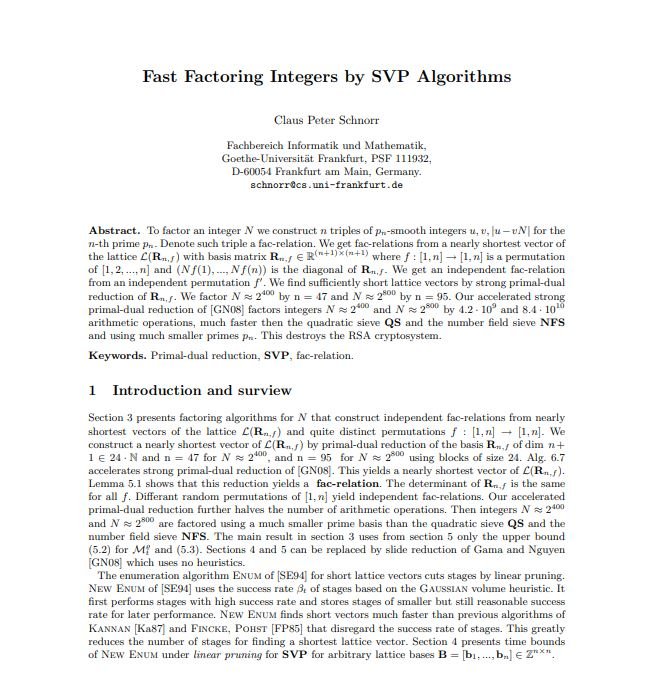A renowned German researcher claims that the RSA algorithm was decrypted by cryptographic analysis specialists, which can represent a breakthrough in the field of mathematics or a cybersecurity risk.
The one-way functions that form the basis of most algorithms depend on the difficulty of solving some problems even with access to a computer with high processing capabilities. RSA security, for example, is based on the difficulty of factoring the product from two large prime numbers.
As you may remember, the RSA cryptographic system uses integer factoring and since its release became one of the most widely used resources for digital encryption. Other types of cryptography use elliptical curves to create a one-way function that cannot be decrypted except through a brute force attack that involves testing as many keys as possible.

Claus Schorr, a mathematician and cryptographer, mentions that prime factorization can be reduced to a shorter vector problem, which could be easier to decipher. The premise of his research, entitled “Fast Factoring Integers in SVP Algorithms,” is that this process could destroy RSA encryption.
If verified, this technique would be functional even if longer encryption values are implemented. It should be remembered that increasing the length of the encryption key is a common response to ensure that algorithms remain in place in the complex world of computing.
The problem is that, if the decryption process of this method was trivialized, a lot of systems considered secure that depend on RSA would become unsafe or at least vulnerable to all kinds of known or known attacks.
Cryptography specialist Matthew Green commented, “I think the general consensus is that this is an exciting approach that, unfortunately, right now has no practical evidence of effectiveness, and associating a particular researcher’s name with him should not be seen as a real change.”
As Green mentions, this decryption method has not yet been extensively demonstrated, much less tested in real or controlled environments, although for many this is a clear alarm signal for organizations to try to reinforce potential weaknesses before cybercriminals take advantage of these flaws. To learn more about information security risks, malware variants, vulnerabilities and information technologies, feel free to access the International Institute of Cyber Security (IICS) website.

He is a well-known expert in mobile security and malware analysis. He studied Computer Science at NYU and started working as a cyber security analyst in 2003. He is actively working as an anti-malware expert. He also worked for security companies like Kaspersky Lab. His everyday job includes researching about new malware and cyber security incidents. Also he has deep level of knowledge in mobile security and mobile vulnerabilities.











